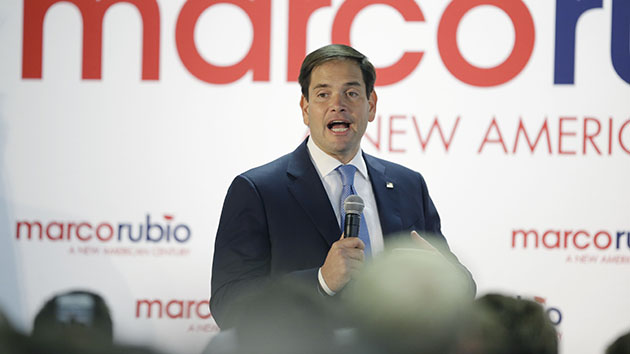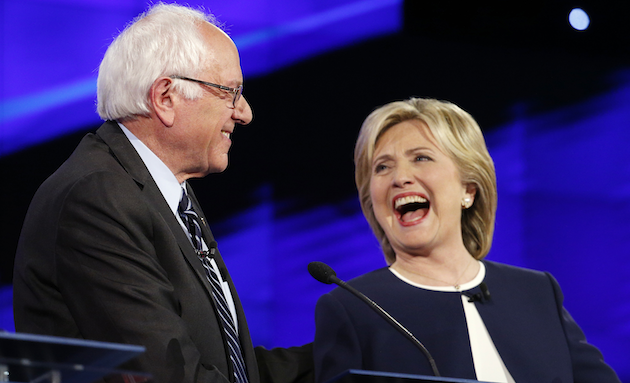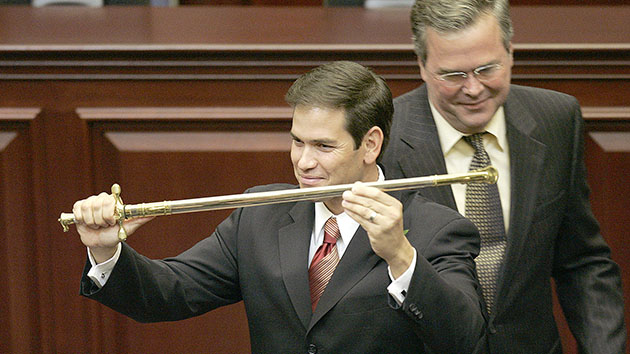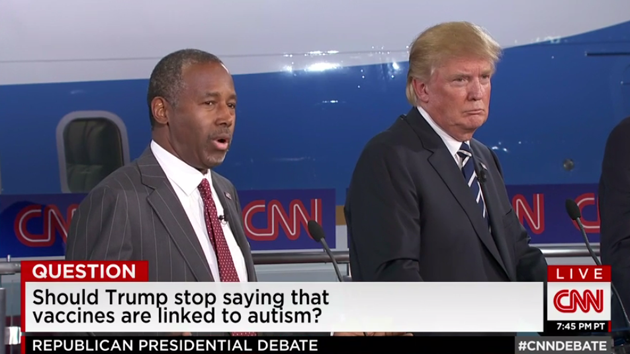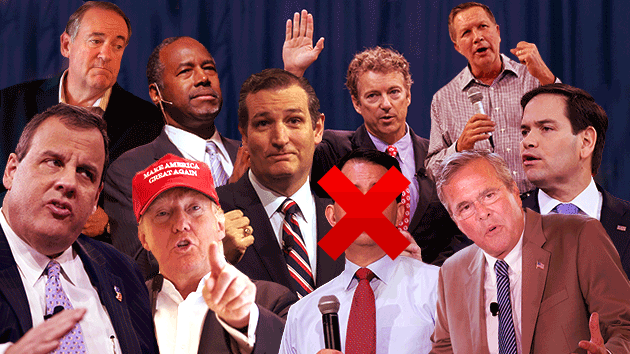
It’s that time again: The third Republican presidential primary debate is upon us. On Wednesday night, the 14 top candidates will gather in Boulder, Colorado, for a showdown over the economy hosted by CNBC. The 10 candidates with the highest polling averages—Ben Carson, Donald Trump, Marco Rubio, Jeb Bush, Carly Fiorina, Ted Cruz, Mike Huckabee, Chris Christie, John Kasich, and Rand Paul—will appear in the main debate, preceded by a junior-varsity debate with the four candidates whose lagging poll numbers disqualified them from the main show: Lindsey Graham, George Pataki, Bobby Jindal, and Rick Santorum.
Here’s what to look for Wednesday night.
How will Trump handle being No. 2? Time and again, Trump has answered critics the same way when they’ve questioned his ability to pull off the nomination: Look at the polls! But after months in the lead, Trump will arrive in Boulder in second place. For the first time since July, someone else is now leading the latest major national poll: Ben Carson. Watch for how Trump adjusts to this new reality. Will he feel the need to amp up his showmanship to retake the spotlight? Might he expound on his recent insight on burkas?
Will the Trump-Carson detente end? For the past two debates, Trump and Carson have enjoyed something of a mutual security pact, with each going relatively easy on the other. But their diplomacy may be falling apart now that Carson has overcome Trump in the latest poll. Trump recently took a jab at Carson’s religion. (Carson is a devout Seventh-day Adventist.) Will this clash between the two front-runners escalate on Wednesday? Trump may lash out, only to find Carson—whose calm demeanor appeals to many voters—unwilling to fight back.
Will Carson become the main target? Candidates typically use debates to try to take down the front-runner and elbow their way to the center of attention. So will Carson get the front-runner treatment from his fellow candidates? Would lashing out at the preternaturally calm neurosurgeon even help a candidate like Trump or Cruz, who would love a piece of Carson’s broad support among evangelicals? Carson is lucky in at least one respect: Aside from Cruz and Huckabee, the candidates who most need the same evangelical demographic as Carson—Jindal and Santorum—won’t be on the same stage.
Will Rubio-mentum keep building? As Bush’s campaign flails, Rubio is emerging as the leading establishment candidate to go up against Trump and Carson. Watch to see if Rubio can take advantage of his minisurge. If he wants to win over the establishment voters—and donors—he needs to make a strong case for himself on matters of business and economics, which are the emphasis of CNBC’s debate. This is his moment to shine. Can he pull it off?
Jeb who? A Bush donor recently admitted that it feels like Bush’s campaign is in a “death spiral.” Another said Bush “has to have a moment out there” to save his campaign. Can Bush use this debate to escape the political quicksand he’s in? In particular, Bush will need to fend off Rubio, his top contender for the establishment vote and a former protégé. Watch for tensions between them to escalate.
Who’s a RyNO now? With a new debt ceiling and budget deal in the works—and some of the major candidates poised to take a vote on it in the Senate—the question is whether any of them will take a political risk to back a deal that would save the country from defaulting on its debt and bring greater budget stability, at least in the short term. How will the three senators who have to vote on this deal—Cruz, Rubio, and Paul—handle it? And if they are against it, will their denouncements extend to soon-to-be House Speaker Paul Ryan (dubbed a “RyNO” by the right-wingers who often label party moderates as Republicans in Name Only, or RINOs)?
Does Fiorina have staying power? The former Hewlett-Packard CEO has used the debates to rise from the bottom tier of candidates to the top. But after each bump comes a fall. Watch to see if Fiorina can dominate this debate—and if that performance can translate into sustained momentum.
Is this Rand’s last stand? Like Bush, Paul is struggling. He’s near the bottom of the top-10 pack, with just over 3 percent in the polling averages. Senate Majority Leader Mitch McConnell, Paul’s fellow senator from Kentucky, has called on the presidential candidate to focus more on holding onto his Senate seat. (Paul is also up for reelection next November.) His fundraising effort is bombing. What’s his plan for using the debate to forestall the inevitable? Go after Christie, again?
Will anyone pay attention to the kiddie debate? Before the big kids’ debate, the four contenders with the lowest numbers will take the stage. And their numbers are dwindling. Rick Perry has dropped out; Jim Gilmore (the former governor of Virginia—remember?) is polling so low that CNBC won’t let him debate. The only candidate who has graduated to the main stage is Fiorina. Will anyone else be able to follow her? And are enough people watching the junior-varsity round for these debates to continue? Being relegated to the minidebate is a cruel fate for these four candidates. “On our side, you’ve got the No. 2 guy [Carson] tried to kill someone at [age] 14, and the No. 1 guy [Trump] is high energy and crazy as hell,” said Graham, a longtime senator, on Monday. “How am I losing to these people?”
Will the moderators treat Carson like a front-runner? Normally, a front-runner gets scrutiny from the moderators. Trump and Hillary Clinton have been grilled by moderators throughout the debates so far. Will the CNBC team treat Carson—who has struggled with even simple economic policy questions—like a front-runner? And will the moderators stick to their topic, or let the candidates sound off on buzzier subjects like the Benghazi hearing, Planned Parenthood, and ISIS?

